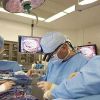How to Prepare for a Heart Disease Diagnosis: A Complete Guide
Published on May 02, 2025
How to Prepare for a Heart Disease Diagnosis
Understanding the Emotional Impact of a Heart Disease Diagnosis
When I first heard the words "heart disease" during a doctor's appointment, it was like a heavy weight dropped into my chest. My mind raced, and I felt a mixture of fear, confusion, and uncertainty. After that initial shock, I realized how important it was to be prepared mentally and physically for the journey ahead. A heart disease diagnosis is never easy, and it can be overwhelming, but taking steps to prepare can help you feel more in control.
The emotional impact of a heart disease diagnosis can be profound. You may feel a sense of fear, loss, or even denial. It’s important to allow yourself to process these emotions, but also to start preparing yourself for the changes that will come. During my own experience, I learned that being proactive and understanding my diagnosis was key to moving forward with confidence.
1. Take Time to Understand Your Diagnosis
One of the first things I did after my diagnosis was to fully understand what heart disease meant for my health. There are many different types of heart disease, ranging from coronary artery disease to arrhythmias, and each type requires different treatment approaches.
1.1 Research Your Condition
I found that the more I learned about heart disease, the less fearful I felt. Educating myself on the specific type of heart disease I had, its causes, and potential complications helped me feel more prepared for what was ahead. I took time to read trusted sources, and I even reached out to support groups where others had shared their experiences.
1.2 Ask Your Doctor Questions
It’s easy to feel overwhelmed during a doctor’s appointment, but it’s crucial to ask questions. The answers will help you make informed decisions about your treatment. Some questions I found helpful to ask were:
- What specific type of heart disease do I have?
- What are my treatment options?
- Are there lifestyle changes I need to make immediately?
- What should I expect during the treatment process?
Understanding these details early on can help you develop a plan of action and reduce the anxiety associated with uncertainty.
2. Prepare for Medical Tests and Treatments
After my diagnosis, I quickly realized that heart disease treatment is not one-size-fits-all. My doctor discussed various options, from medication to lifestyle changes, and in some cases, surgery or procedures like angioplasty or stent placement.
2.1 Medical Tests to Expect
One of the first steps in managing heart disease is a series of medical tests. These tests are essential for determining the extent of the disease and helping doctors tailor the right treatment plan. Common tests may include:
- Blood Tests: To assess cholesterol levels, blood sugar, and other risk factors.
- Electrocardiogram (EKG): To check for abnormal heart rhythms or damage.
- Echocardiogram: A type of ultrasound that helps assess heart function.
- Stress Tests: To evaluate how your heart performs under physical exertion.
Each of these tests provides valuable information that will guide your treatment, and although they might seem daunting, I found that understanding what to expect made the process easier.
2.2 Treatment Options and Decisions
Once you’ve had your tests, the next step is determining your treatment options. Some patients may only need lifestyle changes and medication, while others might require surgery or interventions. The treatments might include:
- Medications: Common medications for heart disease include statins, blood thinners, beta-blockers, and ACE inhibitors.
- Lifestyle Changes: A healthier diet, regular exercise, and stress management can be incredibly effective in managing heart disease.
- Surgical Interventions: In some cases, surgeries like bypass surgery, angioplasty, or valve replacement may be necessary.
It’s important to work closely with your healthcare provider to develop a treatment plan that suits your needs. After my diagnosis, I worked with my doctor to create a plan that included medication and lifestyle changes, and I felt empowered knowing that I had a path forward.
3. Embrace Lifestyle Changes for Better Heart Health
One of the most important steps I took after my heart disease diagnosis was embracing a heart-healthy lifestyle. While it might seem challenging at first, making positive changes to your diet, exercise routine, and stress management can have a significant impact on your heart health.
3.1 Adopt a Heart-Healthy Diet
I quickly realized that what I ate could have a big impact on my heart. A heart-healthy diet typically includes foods rich in fiber, healthy fats, and antioxidants. I started incorporating more whole grains, leafy vegetables, lean proteins, and omega-3 fatty acids into my meals. I also limited processed foods, sugary drinks, and red meats.
3.2 Exercise Regularly
Another crucial lifestyle change was regular physical activity. Initially, it was hard to get started, but I started small with light walks, gradually increasing the intensity over time. Regular exercise helps improve circulation, strengthen the heart, and reduce stress. It doesn’t have to be intense – even 30 minutes a day of moderate exercise can make a huge difference.
3.3 Manage Stress
I learned that managing stress is essential for heart health. Chronic stress can contribute to high blood pressure and other heart disease risk factors. I found relaxation techniques like deep breathing, meditation, and yoga to be incredibly helpful in reducing stress. Incorporating these practices into my daily routine improved my emotional well-being and overall health.
4. Build a Support System
Going through a heart disease diagnosis is not something you have to do alone. I found that talking to friends, family, and healthcare professionals helped me stay positive and motivated. Joining a support group, either in person or online, can also provide emotional support and practical advice.
4.1 Talk to Your Family and Friends
It’s important to communicate openly with your loved ones about your diagnosis. When I shared my concerns with my family, they were incredibly supportive and understanding. Having a strong support system can help you stay positive and motivated during your treatment journey.
4.2 Consider Joining a Support Group
In addition to family support, I found that joining a heart disease support group provided me with a sense of community. Hearing from others who were going through similar experiences helped me feel less isolated and more hopeful about the future. Support groups can be found online, or you can ask your healthcare provider about local groups in your area.




















